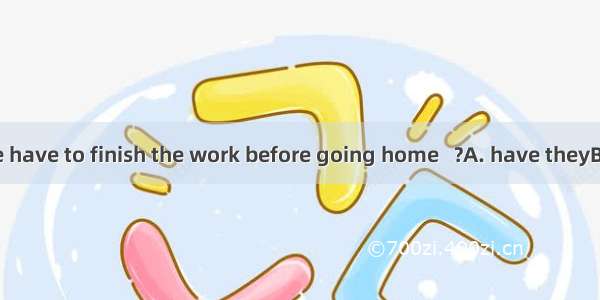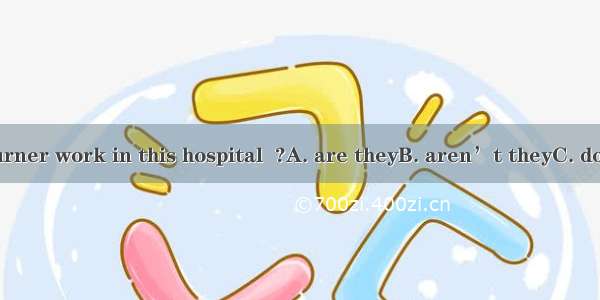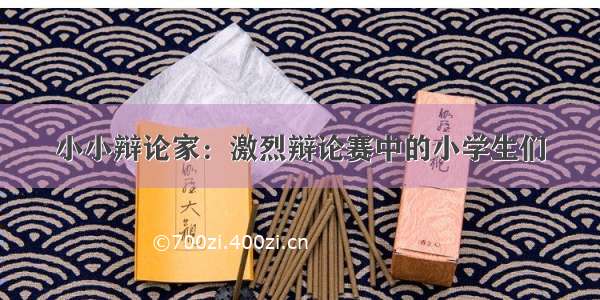
问题补充:
Few weight-loss pills can help to keep people slim, ?
A. do they
B. don’t they
C. can’t they
D. can they
答案:
A. do they
B. don’t they
C. can’t they
(答案→)D. can they
解析:对反意疑问句的回答,无论问题的提法如何,如果事实是肯定的,就用yes,事实是否定的,就要用no。要特别注意陈述句部分是否定结构,反意疑问句部分用肯定式提问时,回答yes或no与汉语正好相反。这种省略回答的yes要译成“不”,no要译成“是”。
例:—He likes playing football, doesn’t he? 他喜欢踢足球,是吗?
—Yes, he does. / No, he doesn’t. 是的。/ 不是。
—His sister didn’t attend the meeting, did she? 他妹妹没有参加会议,是吗?
—Yes, she did. / No, she didn’t. 不,她参加了。/ 是的,她没参加。
简要总结反意疑问句19条:
1) 陈述部分的主语是I,疑问部分要用 aren I.
Im as tall as your sister,aren I?
2) 陈述部分的谓语是wish,疑问部分要用may +主语。
I wish to have a word with you, may I?
3) 陈述部分用 no, nothing, nobody, never, few, seldom, hardly, rarely, little等否定含义的词时,疑问部分用肯定含义。
The Swede made no answer, did he / she?
Some plants never blown (开花), do they ?
4) 含有ought to 的反意疑问句,陈述部分是肯定的,疑问部分用shouldn / oughtn +主语。
He ought to know what to do, oughtn he? / shouldn he?
5) 陈述部分有have to +v. (had to + v.),疑问部分常用don +主语(didn +主语)。
We have to get there at eight tomorrow, don we?
6) 陈述部分的谓语是used to 时,疑问部分用didn +主语或 usedn +主语。
He used to take pictures there, didn he? / usedn he?
7) 陈述部分有had better + v. 疑问句部分用hadn you?
Youd better read it by yourself, hadn you?
8) 陈述部分有would rather +v.,疑问部分多用 wouldn +主语。
He would rather read it ten times than recite it, wouldn he?
9) 陈述部分有Youd like to +v. 疑问部分用wouldn +主语。
Youd like to go with me, wouldn you?
10) 陈述部分有must 的疑问句,疑问部分根据实际情况而定。
He must be a doctor, isn he?
You must have studied English for three years, haven you? / didn you?
He must have finished it yesterday, didn he?
11) 感叹句中,疑问部分用be +主语。
What colours, aren they?
What a smell, isn it?
12) 陈述部分由neither… nor, either… or 连接的并列主语时,疑问部分根据其实际逻辑意义而定。
Neither you nor I am engineer, are we?
13) 陈述部分主语是指示代词或不定代词everything, that, nothing, this, 疑问部分主语用it。
Everything is ready, isn it?
14)陈述部分为主语从句或并列复合句,疑问部分有三种情况:
a. 并列复合句疑问部分,谓语动词根据邻近从句的谓语而定。
Mr. Smith had been to Beijing for several times, he should have been in China now, shouldn he?
b. 带有定语从句,宾语从句的主从复合句,疑问部分谓语根据主句的谓语而定:
He is not the man who gave us a talk, is he?
He said he wanted to visit Japan, didn he?
c. 上述部分主句谓语是think, believe, expect, suppose, imagine等引导的定语从句,疑问部分与宾语从句相对应构成反意疑问句。
I don think he is bright, is he?
We believe she can do it better, can she?
15) 陈述部分主语是不定代词everybody, anyone, somebody, nobody, no one等,疑问部分常用复数they,有时也用单数he。
Everyone knows the answer, don they? (does he?)
Nobody knows about it, do they? (does he?)
16) 带情态动词dare或need的反意疑问句,疑问部分常用 need (dare ) +主语。
We need not do it again, need we ?
He dare not say so, dare you?
当dare, need 为实义动词时,疑问部分用助动词do + 主语。
She doesn dare to go home alone, does she?
17) 省去主语的祈使句的反意疑问句,疑问部分用will you。
Don do that again, will you?
Go with me, will you / won you ?
注意: Lets 开头的祈使句,后用shall we?
Let us 开头的祈使句,后用will you?
Lets go and listen to the music, shall we?
Let us wait for you in the reading-room, will you ?
18) 陈述部分是there be结构的,疑问部分用there省略主语代词。
There is something wrong with your watch, isn there?
There will not be any trouble, will there?
19) 否定前缀不能视为否定词,其反意疑问句仍用否定形式。
It is impossible, isn it?
He is not unkind to his classmates, is he?
这里因为陈述部分有few故后半部分用肯定形式,又因为前面用动词can,故后面用can,应选D。
















